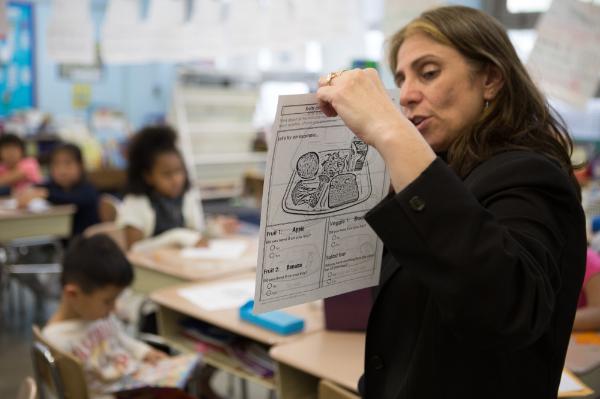
Engage children in exploring food systems, food choice, and personal health!
These curricula address the interplay of biology, personal behavior, and more to the present food system. Our lessons and materials provide educators with the knowledge, skills, and resources to teach effective food and nutrition education.
Our curricula is designed for a wide range of educators, such as:
- K–12 educators
- Pre-service teachers in undergraduate or graduate programs
- Educators (paid or volunteer) who conduct gardening, cooking and other food and nutrition education
Explore, download, and/or purchase our curricula and resources.
The Tisch Food Center produces curricula independently and in collaboration with nonprofit food and nutrition education programs
Linking Food & Nutrition to Science Education
How do we align Food and Nutrition-based lessons to NYC science education standards? This downloadable resource guide for NYC teachers provides lesson links and resources to incorporate food and nutrition education in Pre-Kindergarten-8th grade, aligned to the NYC Science Scope and Sequence.
Food Day
Inspire your students to eat real, fresh food, cut back on processed foods, and advocate for a healthier community. (Designed for use in grades 4-8 and easily adaptable for older or younger students)
Growing Food Curriculum
How does nature provide us with food? — frames students' investigations as they learn about the cycling of matter and the flow of energy. (Designed for use in grades 4-6). Available in English and Spanish.
Farm to Table & Beyond
What is the system that gets food from farm to table and how does this system affect the environment? — frames students' investigations of our complex and highly technological, global food system. (Designed for use in grades 5-6)
Choice, Control & Change
How can we use scientific evidence to help us make healthful food and activity choices? — frames students' investigations of how the human body works and how food and activity play a crucial role in its well-being. (Designed for use in grades 6-8)
i2 Food Chemistry
A summer camp curriculum to help campers discover connections between science and food systems, health and social issues, and how to advocate for food justice and support a sustainable food system. (Designed for use in grades 4-8)
In Defense of Food
Students investigate the question, “What should I eat to be healthy?” and discover what Michael Pollan means by his now-famous answer: Eat Food. Not Too Much. Mostly Plants. This curriculum is a companion to the PBS documentary In Defense of Food. (Designed for use in grades 6-8 in after-school programs and can be adapted for students from age 10 through adulthood)
Dance Breaks
Looking for an easy way to keep your students focused, energized, and productive? Try a Dance Break! These fun, short, instructional videos promote physical activity and foster a healthy, caring classroom environment. (Designed for use in any age group)
Linking Food & Nutrition Education to Reading, Writing & Literacy
This resource begins to align the three reading curricula being adopted in NYC Public Schools (Fall 2023) with food and nutrition education. Currently, resources are available for grades K-3 and 4-6.